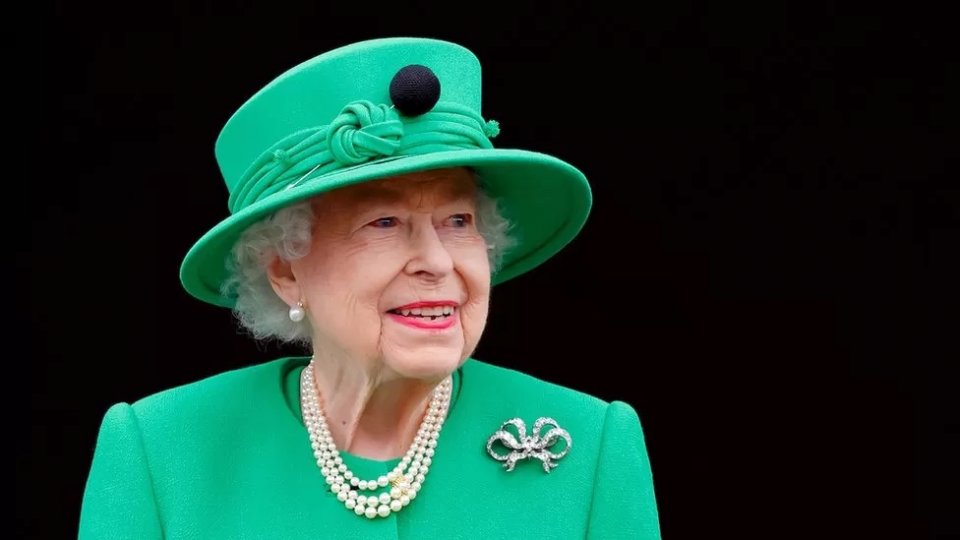To mingle among the many people who had gathered at the gates of Buckingham Palace in the aftermath of Queen Elizabeth II’s death was to get a sense of genuine mourning that went beyond the British Isles.
There was a restrained air of conversation and private grief and a generous offering of flowers conveying the deeply felt sentiment of many, with handwritten messages expressing respect, and personal bereavement.
As I expressed as Chairman of the British Spanish Society in a message of shared condolence to the British Ambassador in Madrid, she will be for ever remembered as ‘a beacon of noble values of faith, duty, service to others, constancy, compassion and sense of the common good’.
I had walked to the palace to pause and reflect after a busy schedule of being interviewed by numerous Spanish media. As a British citizen I felt proud of our Queen. Personal memories flooded back.
I was only a few months old and living in London on 2 June 1953, when she was crowned Queen Elizabeth II, aged 25 years. My English father and Spanish mother celebrated along with many others. They remembered the courage that the future Queen, as a young princess, along with her parents, King George VI and Queen Elizabeth (later Queen Mother) had shown during the Second World War, standing by the British people in defiant resistance against Nazism.
Among my cherished childhood memories was being taken by my beloved anglophile mother, Mabel Marañón, to the changing of the guard at Buckingham Palace, an experience that had me soon imitating the steps of the ‘Guards’, muttering my own version of A.A.Milne’s popular poem written for his four year old son and his nanny in 1924.
‘They’re changing guard at Buckingham Palace –
Christopher Robin went down with Alice.
“Do you think the King knows all about me?”
“Sure to, dear, but it’s time for tea,” says Alice.
As the years went by, I came to respect the Queen even more, her great sense of public duty and personal integrity, and the reach of her soft diplomacy around the globe.
She upheld valued British constitutional traditions, such as the separation of powers between Head of State and government, and respect for the law-making authority of an democratically elected parliament. Her court and reign were of impeccably organised protocol and impressive, often sacred ceremony.
The 70 years of her reign saw profound changes in the world, not least the twilight of the British empire. Her monarchy showed a capacity to adapt and evolve.
During her long reign, there were 15 British prime ministers, and governments of ideologies. During her last days in her Scottish residence of Balmoral, The Queen carried out her last public duty, formalising the end of Boris Johnson’s premiership and asking Liz Truss to form the new British government.
While prime ministers came and went, and different parties governed, The Queen had the enduring respect and affection of the majority of her nation across the UK. She remained above the conflict and binary nature that in modern times had too often come to define politics. She maintained a public neutrality while always reminding the citizens of her country about the values of compassion and service to others, and reconciliation.
While always maintaining her dignity and decorum, the late Queen Elizabeth II stayed closely in touch with her subjects, in good and bad times.
She shared in the pain and mourning of many of her subjects during the pandemic, evoking wartime memories to reassure those ‘feeling a painful sense of separation from their loved ones’ to take comfort in the fact: ‘We will meet again.’
And even in her last months of fragile existence, she still showed a very English sense of humour. She made her mark on the Jubilee celebrations this past June having tea and marmalade sandwiches with Paddington Bear at Buckingham Palace.
Her final journey began, symbolising the unity of the kingdom, along the route from Balmoral to Edinburgh prior to her funeral in London on 19 September, after which she was be laid to rest in Windsor .
In his first public act as King, Charles walked outside the gates of Buckingham Palace and met the public gathered here, shaking hands, exchanging warm words of gratitude and shared grief.
King Charles III, will, as he so well expressed it his first public address, draw on the enduring example of the best of his mother. But he will also have to innovate and modernise the monarchy in a way that his reign connects with Britain’s evolving multi-cultural society and the broader international community, not least on agreed action, protecting the common home of our fragile planet, a subject which he has been active and vocal on for many years. I wish him all the best. Long live the King!
This article was first published in L’Eco de Sitges.
Jimmy Burns OBE is an award winning journalist and author, and Chairman of the British Spanish Society.
If you’d like to contribute to our ‘Opinion, Blogs & Spanish Experiences’ section, please email us: editorial@spainenglish.com. We’d love to hear from you.
Sign up for the FREE Weekly Newsletter from Spain in English.
Please support Spain in English with a donation.
Click here to get your business activity or services listed on our DIRECTORY.


